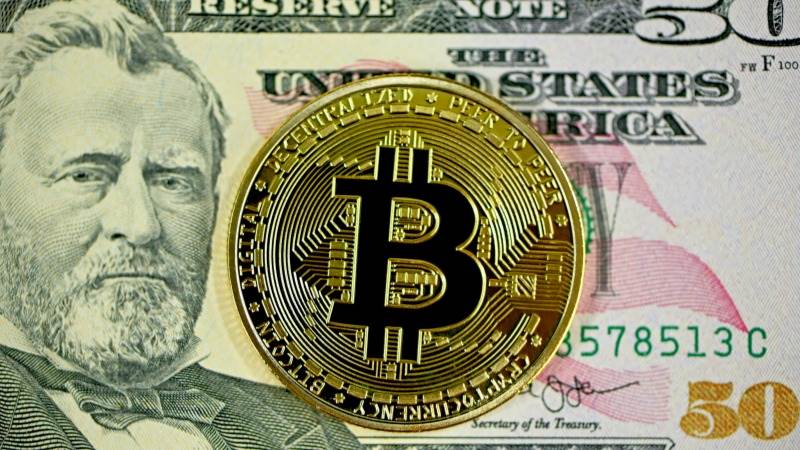Over the 15 years of its existence, Bitcoin emerged as one of the most significant innovations to date in the digital realm, engraving its name as the ground-breaking decentralized digital currency that helped reshape the landscape of global finance. This year, Bitcoin rebounded from the 2022 lows with a nearly 160% gain despite the tumultuous twelve months that marked the crypto world by regulatory scrutiny, Bitcoin futures exchange-traded funds (ETFs), former Binance Chief Executive Changpeng Zhao's (CZ) guilty plea to violations of the US anti-money-laundering laws, and the conviction of FTX founder Sam Bankman-Fried in a $10 billion fraud case.
Bitcoin started the year on a positive note, managing to briefly shrug off concerns brought on by the collapse of FTX, which saw much of the industry's value wiped out, by reaching its two-month-high in January as data started to show signs of cooling inflation, suggesting that the Federal Reserve's tight policy was beginning to take effect and thus creating a more favorable environment for crypto investments. The short-lived optimism helped push Bitcoin over the $24,000 threshold weeks later as the central banks moved in line with expectations.
Months later, however, were marked by the Securities and Exchange Commission's (SEC) advisory on the crypto regulations as it looked to tighten rules on digital tokens following the growing uncertainty in the industry. In addition, the Federal Reserve's tight monetary policies appeared to have taken a toll on the United States banking sector sparking panic and diminishing investor appetite for crypto tokens.
Tight bypassing of the default on government debt in the United States, offered some relief for crypto investors a month later, only for the SEC's lawsuits against Kraken and Coinbase, alleging that the companies offered unregistered services, to rattle up the digital world shortly afterward. Earlier this year, the agency reached a $30 million settlement agreement with Kraken that led the company to shut down its crypto staking program in the United States. The Commission's Chairman Gary Gensler cautioned in the aftermath of the agency's crackdown on the industry that crypto firms make "calculated decisions" to take risks.
On the other hand, the summer of 2023 painted a slightly brighter picture for token enthusiasts once BlackRock brought the story of the Bitcoin exchange-traded fund (ETF) back to life, which helped build up optimism for their supposed approval early next year despite the regulatory challenges the firms faced. Anticipation of ETF approval further helped support Bitcoin's recovery, raising its price to over $30,000 in October, with its value finally surpassing the $40,000 mark in December. Bitcoin's gains also helped crypto-tied stocks to grow this year, including Coinbase, MicroStrategy, and Grayscale Bitcoin Trust, all registering over 300% surge in value in the last 12 months.
With a slightly optimistic footing for 2024 in terms of macroeconomic trends, Bitcoin is looking to gain approval on ETFs in January, which could offer investors a glimpse into the trading of Bitcoin without actually owning the digital coin making it easier for market participants to track tokens through their tried-and-true brokerage. This approach would simplify the process for traders, while regulatory oversight is expected to enhance transparency in the handling of tokens. In the next 12 months, Bitcoin could see further growth in its value during its much-anticipated halving period which is expected to take place at some point in 2024.




